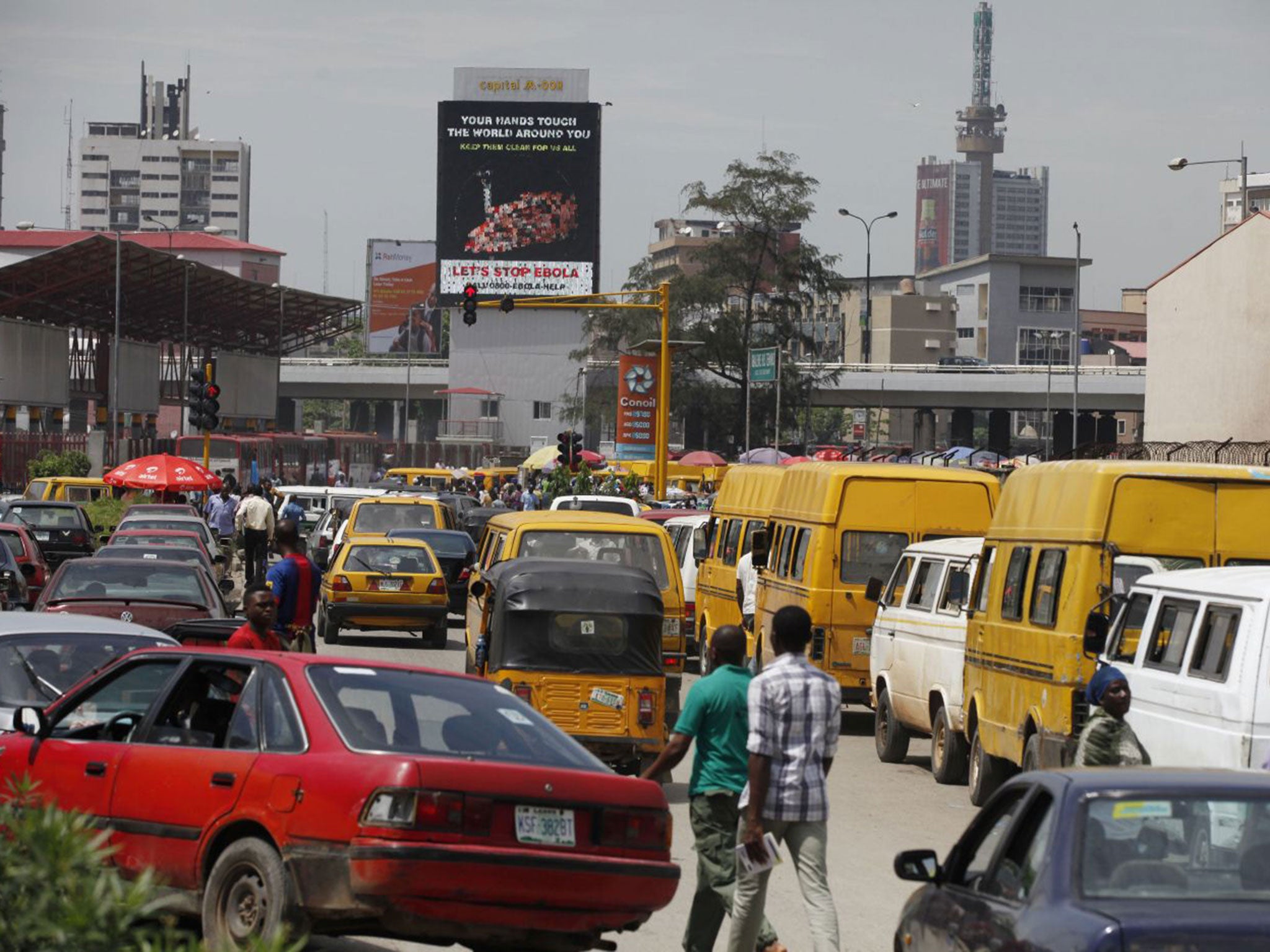Ebola crisis: Nigeria's 'spectacular success' in combating virus provides hope for others
Forty people taken off an Ebola watchlist in US

While the Ebola crisis continues unabated in Guinea, Liberia and Sierra Leone, there was better news elsewhere in West Africa on Monday, as the World Health Organisation (WHO) declared Nigeria free of the deadly virus. In the US, meanwhile, more than 40 people were taken off an Ebola watchlist, having failed to develop symptoms after coming into contact with Thomas Eric Duncan, the Liberian patient who died of the disease in Dallas on 8 October.
Nigeria fielded its first Ebola patient in Lagos in July, leading to 19 confirmed cases in the country, seven of whom died. That handful of deaths stoked fears of an epidemic in Africa’s most populous country, but in a statement praising Nigeria for its swift and effective response to the virus, the WHO said, “This is a spectacular success story that shows that Ebola can be contained.”
Ebola has a 21-day incubation period, and Monday marked the end of three weeks since Mr Duncan’s diagnosis – the first in the US – meaning that 44 people who had come into contact with him before his hospitalisation were released from quarantine and declared Ebola-free. Five children who were monitored are expected to return to school tomorrow.
Louise Troh, Mr Duncan’s fiancée, was among those taken off the watchlist. “We are so happy this is coming to an end, and we are so grateful that none of us has shown any sign of illness,” Ms Troh, 54, said. “We have lost so much, but we have our lives and we have our faith in God, which always gives us hope.”
See the Ebola outbreak mapped
Show all 7Ms Troh expressed sadness at the news that Nina Pham and Amber Vinson, two nurses who treated Mr Duncan at Texas Health Presbyterian Hospital, had also contracted Ebola. More than 70 other medical workers who assisted in his care are being monitored. Mr Duncan arrived in Dallas from Liberia on 20 September and went to hospital on 25 September, only to be sent home with antibiotics. He returned three days later and was finally diagnosed with Ebola.
On Sunday, the CEO of Texas Health, Barclay Berdan, published an open letter to the community in two Texas newspapers, saying the hospital was “deeply sorry” for the initial misdiagnosis and acknowledging, “mistakes in handling this very difficult challenge”.
The disease has caused panic in parts of the US, with some politicians calling for a ban on flights between the US and affected West African nations, despite the warnings of the Centres for Disease Control and Prevention (CDC), which has said a flight shutdown would worsen the crisis. In Mississippi last week, several parents pulled their children from school after learning the head teacher had holidayed in Zambia, thousands of miles from the outbreak.
Ron Klain, a former chief of staff to Vice Presidents Joe Biden and Al Gore, is due to take up a new role as the Obama administration’s “Ebola tsar” tomorrow.
More than 4,500 people are confirmed to have been killed by Ebola in West Africa this year, though its spread beyond the three worst affected counties has been brought under control. Senegal treated a single patient, who had travelled from Guinea before his diagnosis and later recovered. In Spain, a nurse’s assistant was declared Ebola-free after becoming the first person to contract the virus outside Africa. Teresa Romero, 44, was diagnosed with Ebola after treating two missionaries who had returned from West Africa with the disease.
In Nigeria, health officials tracked down and monitored almost everyone thought to have come into contact with the country’s confirmed Ebola patients for 21 days. Nigeria’s response, the WHO said, “can help the many other developing countries deeply worried by the prospect of an imported Ebola case... Many wealthy countries, with outstanding health systems, may have something to learn as well.”
Subscribe to Independent Premium to bookmark this article
Want to bookmark your favourite articles and stories to read or reference later? Start your Independent Premium subscription today.

Join our commenting forum
Join thought-provoking conversations, follow other Independent readers and see their replies